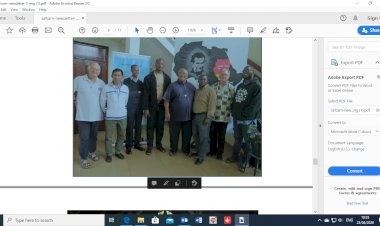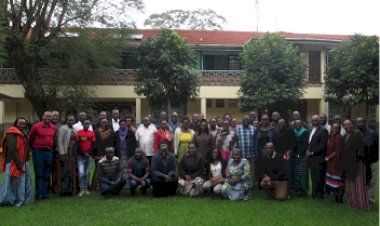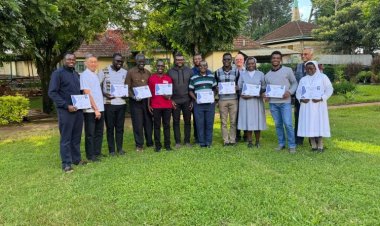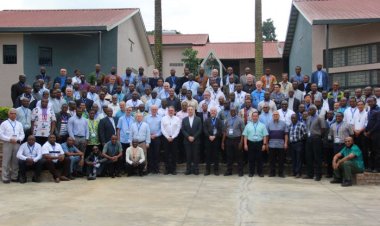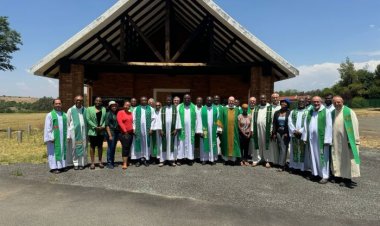SPIRITUAL ACCOMPANIMENT
SPIRITUAL ACCOMPANIMENT is Indispensable Service for Progress in Spiritual Life - a summary of important elements by Don Maria Arokiam Kanaga sdb
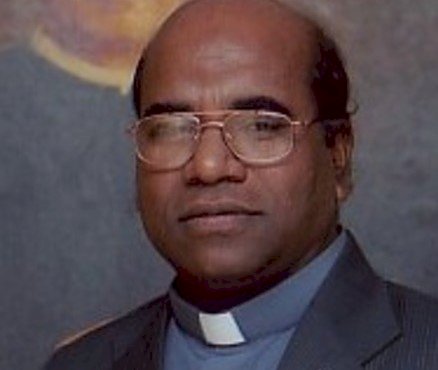
SPIRITUAL ACCOMPANIMENT is Indispensable Service for Progress in Spiritual Life
These few hints on spiritual accompaniment, commonly called “spiritual direction” are given to you to help you make the best of this wonderful and vital means, so indispensable for anyone wanting to progress in spiritual life.
The need for spiritual direction arises basically from the fact that God is at work in me constantly and leads me to my salvation through the vicissitudes of my life, and it is possible to live unaware of this. To discern this besides the word of God and the sacraments, a companion who himself is struggling to find the ‘God of his story” can become a co-discerner and a great help. We therefore speak today of “Spiritual Accompaniment, Companionship” rather than spiritual “direction”.
This, therefore is what spiritual direction is about. It is not primarily counselling, problem solving, clearing doubts, getting new ideas, friendly chit-chat of emotional let up, but “faith sharing”, i.e., sharing of the ways in which God is moving me to my mission and my salvation, although the above elements are not excluded. Faith thus shared, tends to increase in both the sharers and they grow. That is the beauty of spiritual “direction”.
Spiritual Accompaniment is not a relationship between two adults, but a relation of two people with a third party, the Lord. Hence the two human beings do not focus on each other, but on the Lord. Spiritual direction becomes a moment of evangelization because we proclaim God’s saving action in us. All this said, it is clear that spiritual direction presupposes faith, or at least a longing for faith, personal prayer life, openness to the prompting of the Holy Spirit, willingness to share one’s heart, trust in the other person and readiness for conversion.
Sharing of faith is good for clarifying own religious experience, getting rid of guilt, realizing that I am a well-beloved child of God, improving my relationships and strengthening my sense of mission.
ROLES OF DIRECTOR / DIRECTEE
Since this is a mutual relationship any function on the part of one implies a corresponding function on the part of the other.
DIRECTOR
- Respects the uniqueness of the directee
- Listens with total attention to verbal and non-verbal communication.
- Discerns with (not for) the directee
- He is not a preacher, teacher, superior, confessor or therapist, but co-discerner.
- Clarifies what may be ambiguous, may ask questions, not out of curiosity, but to better clarify.
- At a later stage confronts challenges and calls forth the best in the directee.
- Leads towards practical application in life.
- Guards against delusions in spiritual life supports in aridity.
- Does not make decisions for the directee, but leads him/her to make their own decisions.
- Preserves confidentiality
- The main aim of the director is to free the inner forces of the directee towards holiness.
DIRECTEE
- Preserves his identity and individuality.
- Opens himself freely without fear or inhibition.
- Takes responsibility for his action and his own duty of discernment.
- Does not expect undue competence in all the fields.
- Answers questions with simplicity.
- Displays great confidence and relates with him as a mature partner in the journey.
- Takes practical resolution for life.
- Shows readiness to accept the inspirations of the Holy Spirit even when it is demanding or unpleasant.
- Takes his own decisions.
- Has trust in the director.
- Accepts responsibility for his freedom and growth.
- He meets the director frequently. Long periods of absence are not helpful. It is also a good practice to keep the sessions reasonably short. To go for long hours once, and then not go for a long time is an unhelpful practice.
- Is faithful in regularly meeting the Director (ideal is once in a month).
IMPORTANT AREAS TO DISCUSS IN SPIRITUAL DIRECTION
PRAYER LIFE: How does the Lord appear to me in prayer?
How do I feel towards him? How do I pray? What is my relationship with him?
- MOTIVE FORCES IN LIFE: What are the motives that influence my day to day decision making? Am I driven by impulses or drawn by the Lord?
- LIFE OF LOVE: What is my first love? Are there inordinate affections in my heart?
- TENDENCIES AND HABITS: Towards holiness or towards sinfulness.
- The direction of the main emotions in me like, fear, guilt, anger, worry etc
- Ideology / ideologies that guide me.
- My idea of consecrated life/priesthood, mission and Church.
- Community living, etc…
Often spiritual accompaniment, because of the profound and personal nature of sharing, could lead to intimate friendship. This can serve many ends like freeing the directee from fear and inhibitions, removal of masks and tasting God’s love through a friend. But care must be taken that this intimacy does not become the primary motive for meeting. Intimacy with the Lord is the final goal.
SIGNS OF PROGRESS IN SPIRITUAL LIFE.
(to check if spiritual direction is going well)
General improvement of life. Life is the acid test of spiritual progress.
- More joy, serenity, faith and optimism
- Better community living, lack of divisions
- More altruism and less self-seeking
- More mission orientation
- More discipline and humility and gratitude
CONTINUITY IN SPIRITUAL DIRECTION
Spiritual Direction is a life-long process and need. A study among the formation houses of the congregation proves that more than half of all the Salesians give up spiritual direction towards the end of their initial formation. This, according to me, is a serious obstacle for spiritual progress. The reasons for this could be:
- Probably they have been fulfilling it as a duty rather than a right. Spiritual direction is the RIGHT of every confrere, and the Congregation makes efforts to offer them this service.
- There are psychological and cultural blocks for opening up oneself deeply in front of another.
- There could be fear in opening up, since the Superior of the house has been proposed as the spiritual director, and hence the confrere could be playing safe, rather than sincerely open up. Realizing this, the congregation now permits liberty in the choice of spiritual directors soon after the novitiate.
- There could be confusion between spiritual direction and manifestation and psychological counselling. The practice of manifestation (rendiconto) is often dropped by confreres once they feel mature in life, and see that there other moments to share the usual contents of manifestation.
- The frequent transfer of confreres often necessitates the change of spiritual directors, and this is not helpful. For this today’s technologies like telephones and video chats could be of use.
- The formation guides are generally well-qualified for being teachers. The lack the formation needed for being formators and spiritual guides.
- Basically, the confrere/sister will find a way to continue spiritual direction if he/she has found the taste and the joy of spiritual direction. Hence it is the bounden duty of the director to make the meetings pleasant and inviting and useful for the directee by attentive listening and care. Maria Arokiam Kanaga sdb
Points to Ponder:
- We could meditate profitably on Lk. 24 (the disciples of Emmaus) and Jn: 3 (the Samaritan women) to understand Christ’s own style of spiritual accompaniment.
- Think of the best moments in the history of your spiritual direction. Resolve to choose someone from now, and to be regular for this wonderful instrument of spiritual progress.









